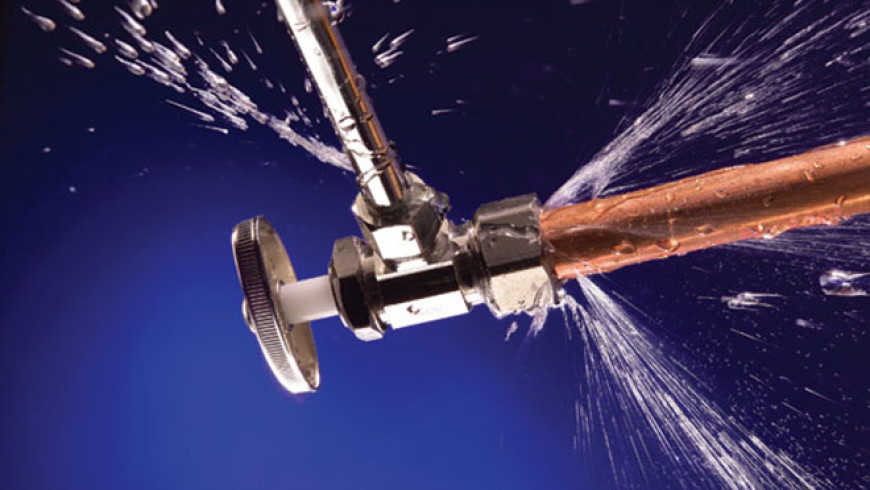We have stumbled upon this post about How Fast Water Damage Can Ruin Your Home listed below on the web and decided it made good sense to relate it with you on my blog.
/GettyImages-957479686-f3d2e677f2e749fc98aa207b474c5c1f.jpg)
Leaks not just trigger waste of water but can also trigger unnecessary damages to your home and also promote undesirable natural development. By understanding and also looking for daily circumstances that cause leakages, you can secure your home from future leakages as well as unnecessary damage.
Instantaneous temperature adjustments.
Severe temperature level modifications in our pipelines can cause them to broaden and acquire all of a sudden. This growth and contraction may create cracks in the pipes, specifically if the temperature are below cold.
Corroded water supply
As time goes by, your plumbing system ages and rust such as corrosion may start gnawing the pipes. This may be the source of discoloration or warping on your water pipes. This asks for an evaluation with your plumber quickly. If our plumbing system is old, think about changing the pipelines since they are at a greater threat of deterioration than the newer designs.
Defective Pipe Joints
The point at which your pipes connect is frequently the weakest link in the waterline. Pipe joints can weaken with time, causing water leakages. The bulk of pipe joints are not easily noticeable. If you have noisy pipes that make ticking or banging noises, particularly when the hot water is switched on, your pipeline joints are probably under a lot of pressure. It is advisable to have your plumber inspect your system once a year.
Elbowing in origins
Many water leakages start outside the residence rather than inside it. You may see wet patches or sinkholes in your backyard, as well as that could suggest that tree roots are invading water lines triggering water to seep out.
Poor Water Connectors
At times, a leakage can be caused by loosened pipes and pipelines that supply your devices. In case of a water links leak, you may discover water running directly from the supply line or puddles around your devices.
Clogged Drains
Obstructed drains could be frustrating and inconveniencing, however they can occasionally wind up causing an overflow causing burst pipes. Maintain removing any materials that might drop your drains that might obstruct them to stay clear of such hassles.
All the above are reasons for leakages yet not all water leakages result from plumbing leaks; some leaks may originate from roof leakages. All leakages need to be repaired right away to prevent water damages.
Leakages not just trigger waste of water however can additionally create unnecessary damage to your home as well as advertise undesirable organic growth. By understanding as well as looking for day-to-day scenarios that trigger leaks, you can safeguard your house from future leakages as well as unneeded damages. Today, we will certainly look at 6 leakage causes that may be causing your pipes to drip.
At times, a leak can be caused by loose hose pipes as well as pipes that supply your home appliances. In situation of a water connections leak, you may observe water running straight from the supply line or puddles around your home appliances.
How To Check For Water Leak In Your Home
How To Check for Leaks
The average household's leaks can account for nearly 10,000 gallons of water wasted every year and ten percent of homes have leaks that waste 90 gallons or more per day. Common types of leaks found in the home are worn toilet flappers, dripping faucets, and other leaking valves. These types of leaks are often easy to fix, requiring only a few tools and hardware that can pay for themselves in water savings. Fixing easily corrected household water leaks can save homeowners about 10 percent on their water bills.
To check for leaks in your home, you first need to determine whether you're wasting water and then identify the source of the leak. Here are some tips for finding leaks:
Take a look at your water usage during a colder month, such as January or February. If a family of four exceeds 12,000 gallons per month, there are serious leaks.
Check your water meter before and after a two-hour period when no water is being used. If the meter changes at all, you probably have a leak.
Identify toilet leaks by placing a drop of food coloring in the toilet tank. If any color shows up in the bowl after 10 minutes, you have a leak. (Be sure to flush immediately after the experiment to avoid staining the tank.)
Examine faucet gaskets and pipe fittings for any water on the outside of the pipe to check for surface leaks.
Undetected water leaks can happen without the home or business owner even realizing. If you suspect a water leak, but not able to find the source. It is time to contact a professional water leak detection service, The Leak Doctor.
How To Find a Water Leak In Your Home
https://www.leakdoctor.com/blog/How-To-Check-For-Water-Leak-In-Your-Home_AE197.html

Do you like reading up on Common Water Leaks In House? Write a comment further down. We would be interested to know your thinking about this content. Hoping that you come back again soon. Are you aware of anybody else who is looking into the topic? Do not hesitate to promote it. We recognize the value of reading our article about Top Causes of Home Water Leaks.
Visit Our Site